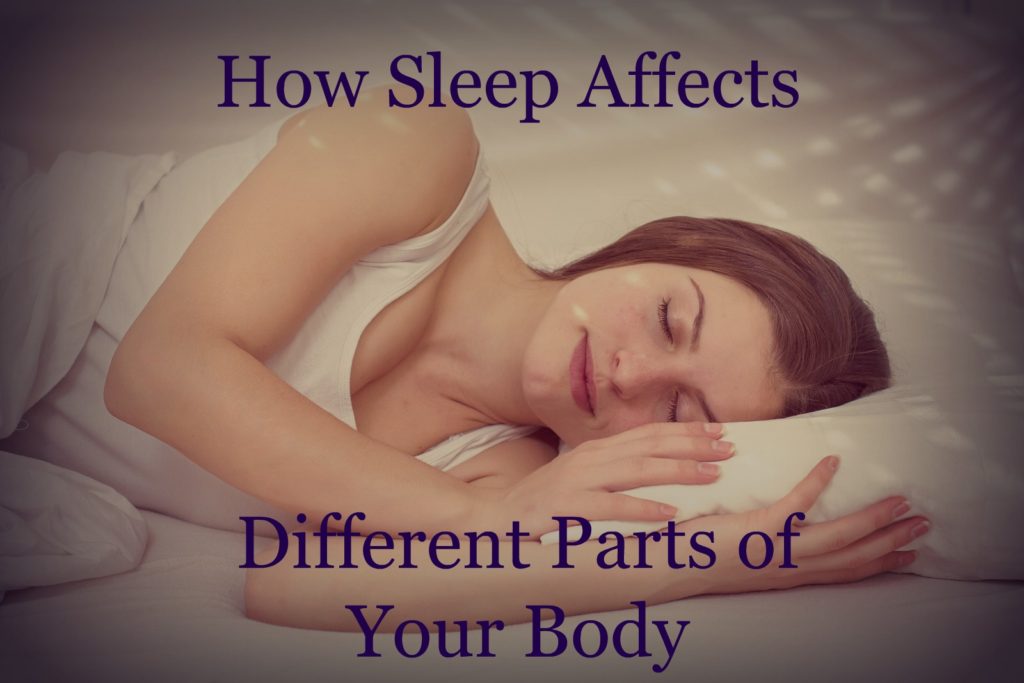Sleep is vital to our health and well-being. Regularly sleeping seven to eight hours a night helps your health, body, and your mind perform at their very best. However, you may not know that your body is doing some amazing things for you, all while you’re getting your needed rest and rejuvenation. 
Read on to discover what your body goes through while you sleep.
Body Temperature– At night, our body temperature and adrenaline levels drop. A lower body temperature saves energy by burning less calories which helps you to fall into a deeper sleep.
Brain– Sleep is beneficial to memory and learning. Throughout the day, your brain absorbs, processes, and stores more information than you notice, and much more than you need. While you sleep, your brain filters out information that you don’t need and stores all needed new information. Studies performed at Harvard University prove that people who slept after learning did better on tests.
Breathing- While we sleep our throat muscles relax and become more narrow. Some people develop sleep apnea (impaired breathing during sleep), sometimes caused by fat build up, aging, or poor muscle tone. It could be dangerous and should be treated by a professional sleep expert.
Digestive System– Due to our bodies being immobile while we sleep, our digestive system slows while we sleep. It is recommended that you avoid eating late at night for this reason, especially if you want to avoid that bloated feeling in the morning.
Eyes– During REM (rapid eye movement) sleep, occurring around every 90 minutes or so, our eyes will dart quickly back and forth. It is during this time that most of our dreaming is done.
Heart- Serious sleep disorders are often affected by hypertension, stress, and irregular heartbeats which can have a negative impact on cardiovascular health. If you suspect you have a sleep disorder, seek treatment as soon as possible.
Hormones– In our anabolic sleep state, our bodies produce the human growth hormone (HGH). HGH is essential to healthy growth, repair, and maintenance of muscles and bones. Also, going without sleep is likely to make us feel hungry as levels of leptin (an appetite regulating hormone) drop.
Immune System– According to the Mayo Clinic, sleep produces a release of proteins called cytokines. These proteins work to promote sleep, but they are also needed in higher amounts when you are combating illness or stress. Sleeping helps your immune system do its best work, and keep you healthy.
Kidneys– The key functions of kidneys are to filter toxins from the bloodstream and produce urine. During sleep this process is slowed. According to WebMD, sleeping less than 5 hours per night is linked to reduced organ function in women, and could lead to kidney failure.
Mouth– For many, salivary flow is slowed down at night causing dry mouth in the morning. For some, about 1 in 20, the mouth is highly active during sleep causing you to unconsciously grind your teeth.
Muscles– Though we change positions roughly 35 times per night, our muscles remain in a relaxed state giving them a chance to repair and restore vital tissue.
Paralyzed– During REM sleep the muscles in our arms and legs will lock in place, essentially paralyzing us while we sleep.
Skin– Good, deep sleep helps speed up our skins metabolic rate which helps repair damage done to the skin during the day. Deep sleep at night is what some consider “beauty sleep” because tissue repair is not available during day time sleep as the energy is being used elsewhere.
Twitching/Movement– Everyone has parts that will involuntarily twitch or move while we are sleeping or falling asleep. The ferocity of this movement can indicate how tired you are. The more exhausted you are, the bigger the movement.
It is evident that getting a good night’s sleep is important to everyday life. If you are having trouble sleeping at night and fail to feel rested throughout the day, there are an array of effective solutions for treating sleep issues. Participating in a sleep study can be a very valuable exercise to determine if an underlying sleep disorder is causing the diminished quality of your sleep.

